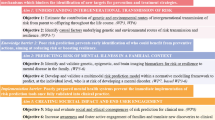Abstract
Rationale
The ethical debate concerning the use of animals in biomedical and pharmacological research continues to be replete with misunderstandings about whether animals have moral standing.
Objectives
This article briefly reviews the central ethical positions and their relationship to the basic parameters of research regulation from an international perspective. The issues associated with the validation of animal models will then be discussed. Finally, suggestions for empirical ethics research will be presented.
Methods
Recent literature reviews were accessed and analyzed.
Results
This review summarizes the pertinent ethical and research literature.
Conclusions
In summary, regardless of the ethical perspective one favors, there is strong agreement that animals matter morally and that at a minimum their welfare must be considered. This position is reflected in the structure of national regulatory schemes that emphasize the three Rs (replacement, reduction, refinement). Researchers should more actively participate in the discussion by becoming more knowledgeable about the details of the ethical issues. Research with animal models has been problematic in that it has often focused on attempting to produce global models of psychiatric disorders, which suffer from inherent validity problems. Researchers must also become more sophisticated about issues of model validation and the nature of the animals they use.
Similar content being viewed by others
References
Babkin BP (1938) Experimental neuroses in animals and their treatment with bromides. Edinb Med J 45:605–619
Beauchamp T (1997) Opposing views on animal experimentation: do animals have rights? Ethics Behav 7:113–21
Brody B (1998) The ethics of biomedical research: an international perspective. Oxford University Press, New York
Cohen C (1986) The case for the use of animals in biomedical research. N Engl J Med 315:865–70
De Grazia D (1991) The moral status of animals and their use in research: a philosophical review. Kennedy Inst Ethics J1:48–70
Epling W (1989) Rats. Behav Anal 12:251–253
Frey R (2002) Ethics, animals, and scientific inquiry. In: Gluck JP, DiPasquale T, Orlans FB (eds) Applied ethics in animal research: philosophy, regulation, and laboratory applications. Purdue, West Lafayette, pp 13–24
Geyer MA, Markou A (1995) Animal models of psychiatric disorders. In Bloom FE, Kupfer DJ (eds) Psychopharmacology: the fourth generation of progress. Raven, New York, pp 787–798
Gluck JP (1997) Learning to see the animals again. In: Lafollette H (ed) Ethics in practice. Blackwell, London, pp 160–167
Gluck JP, DiPasquale T (2002) Introduction and overview. In: Gluck JP DiPasquale T, Orlans FB (eds) Applied ethics in animal research: philosophy, regulation, and laboratory applications. Purdue, West Lafayette, pp 1–11
Gluck JP, Kubacki SR (1991) Animals in biomedical research: the undermining effect of the rhetoric of the besieged. Ethics Behav 1:157–173
Goodman S, Check E (2002) Animal experiments: the great primate debate. Nature 417:684–687
Griffin D (1981) The question of animal awareness. Rockefeller University, New York
Griffin D (1984) Animal thinking. Harvard University, Cambridge
Griffin D (1992) Animal minds. University of Chicago, Chicago
Harlow HF, Harlow MK, Suomi SJ (1971) From thought to therapy: lessons from a primate laboratory. Am Sci 59:538–549
Hauser M (2000) Wild minds. Henry Holt, New York
Kilts CD (2001) The changing roles and targets for animal models of schizophrenia. Biol Psychiatry 50:845-855
Masserman JH (1946) Principles of dynamic psychiatry. Saunders, Philadelphia
McClearn G (1979) Genetics and alcholism simulacra. Alcohol Clin Exp Res 3:255–258
Midgeley M (1984) Animals and why they matter. University of Georgia Press, Athens
Morrison A (2001) A scientist's perspective on the ethics of using animals in behavioral research. In: Carroll M, Overmier JB (2001) Animal research and human health. American Psychological Association, Washington D.C.
Morrison A (2002) Developing an ethical view on the use of animals in biomedical research. Physiologist 45:135–144
Orlans FB (2002) Ethical themes of the national regulations governing animal experiments: an international perspective. In: Gluck JP, DiPasquale T, Orlans FB (eds) Applied ethics in animal research: philosophy, regulation, and laboratory applications. Purdue University, West Lafayette
Overall KL (1994) Use of clomipramine to treat ritualistic motor behavior in dogs. J Am Vet Assoc 205:1733–1741
Regan T (1983) The case for animal rights. University of California, Berkeley
Roberts LW, Warner T, Brody J (2000) Perspectives of schizophrenia patients and psychiatrists regarding ethically important aspects of research participation. Am J Psychiatry 157:67–74
Rollin B (1989) The unheeded cry: animal consciousness, animal pain and science. Oxford University, New York
Russell W, Burch R (1959) The principles of humane experimental technique. Methuen, London
Sapontzis S (1987) Morals, reasons and animals. Temple University, Philadelphia
Shenger-Krestovnikova NR (1921) Contributions to the question of differentiation of visual stimuli and the limits of differentiation by the visual analyzer of the dog. Bull Lesgaft Inst Petrograd 3:1–43
Singer P (1975) Animal liberation: a new ethics for the treatment of animals. New York Review, New York
Singer P (1990) Animal liberation: a new ethics for the treatment of animals, 2nd edn. New York Review, New York
Willner P (1995) Animal models of depression: validity and applications. In: Gessa G, Fratta W, Pani L, Serra G (eds) Depression and mania: from neurobiology to treatment. Raven, New York, pp 19–41
Author information
Authors and Affiliations
Corresponding author
Rights and permissions
About this article
Cite this article
Gluck, J.P., Bell, J. Ethical issues in the use of animals in biomedical and psychopharmocological research. Psychopharmacology 171, 6–12 (2003). https://doi.org/10.1007/s00213-003-1478-y
Received:
Accepted:
Published:
Issue Date:
DOI: https://doi.org/10.1007/s00213-003-1478-y




